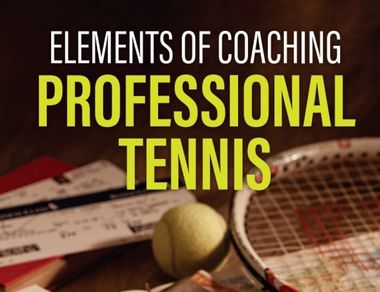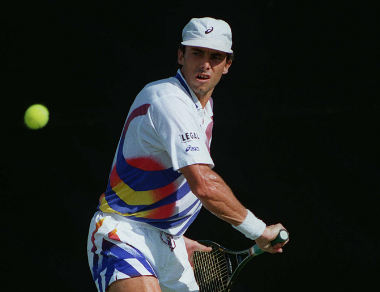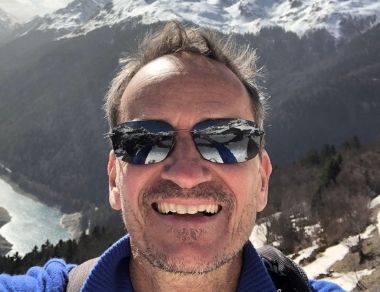Elite Tennis caught up with Claudio Pistolesi, GPTCA A* Level Coach, to talk about his passion for the game, never-ending learning and effective communication with players.
You said once that passion is the key attribute that determines success among tennis coaches. Who or what inspired your passion for the game?
CLAUDIO PISTOLESI: I was lucky because when I was one year old my parents decided to move to a home close to a large tennis club with 24 courts. Apart from that, in the 1970’s Italy was a superpower in tennis. The Davis Cup was really important, it was considered a much bigger deal than it is now. My country reached the DC finals five times in a row, including one title. Adriano Panatta, one of my first tennis idols, had the status of a superstar. There was also a tennis magazine in Italy called ‘Match Point’(we had no Internet at the time), and I couldn’t wait to get my hands on the latest issue that was released each month. As soon as I got a copy, I took out the poster from the inside and put it on the wall of my room. Jimmy Connors was featured on one of the posters and always had a prominent place on my wall. I was really impressed by his determination to win matches and his fighting spirit. In fact, when I was 19, the poster of Jimmy Connors was still in my room when I faced him at the US Open for the first time. Armstrong Stadium was full for our 2nd round match with twenty thousand people in the stands. I was also inspired by a book by Gianni Clerici, a Hall of fame inductee and one of the best tennis writers in history. His book ‘500 Years of Tennis’ is outstanding as I always say that it’s important to learn about the history of the game. I devoured the pages on Don Budge, Tilden, and the Australians Newcombe and Laver. I would say that through those books I became a historian of tennis.
Can you say that you still have the same passion as you had as a young boy?
CP: Even more so, I would say. I’m getting older, I can’t help this, but my passion for tennis is not declining. I continued my playing career for as long as I possibly could and right after my career I started coaching. Coaching forces you to study new techniques all the time, to make new discoveries about the game, there is always something new. I’m currently employing new technologies to train players, I’m always on the lookout for new ways to improve their performance. This is why coaching is so exciting and will never cease to be. Tennis runs in my blood and my passion has increased each year I would say.
Almost all young coaches are well aware that in this job (coaching) learning never ends, that they should never stop innovating, looking at what they can improve. As far as you can see, is there anything that these coaches are missing?
CP: When I go to various coaching courses, I see that young coaches are pretty knowledgeable. They know a lot about biomechanics, and other more advanced aspects of the game. The problem is that they forget one crucial thing, which is how to bring this knowledge to their player. The best advice I can give to young coaches is this: make sure you are able to transmit messages to your player so that they are able to absorb it smoothly. Empathy is the key word here. You can be Einstein, but if your player can’t understand understand you, then your knowledge is useless.
What’s your advice to coaches who want to get better at communicating with their players?
CP: If something doesn’t work, try something new, something you’ve never tried before. Many coaches just talk and talk, and nothing ever changes. Make your players see new things, make them feel new things… It’s called proprioception. What else? Study sports psychology. There is a great degree program at the Newport Research University which I recommend wholeheartedly. I’m studying right now despite being 48 years old, it has really been fantastic for this purpose.



